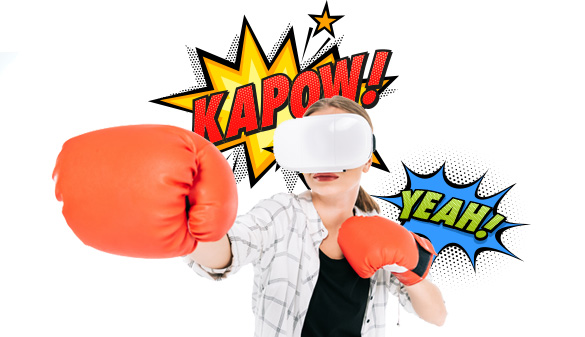
In the last two years, games companies made some of their boldest plays ever. Across the ecosystem—from emerging studios and leagues to behemoth publishers and platforms—companies pursued landmark deals and financings, built global brands, defended their intellectual property, and sometimes went to combat in litigation to meet their business goals.
Fenwick is proud to be counsel to world-class companies shaping the future of the games industry. Here’s a wrap-up of some of the top deals and issues we’ve helped our clients with:
Deals
Giant and Buyer Group Acquire CIE’s Playtika Unit for $4.4 Billion
King Digital Entertainment Finalizes $5.9 Billion Acquisition by Activision Blizzard
Supercell Oy Finalizes $8.6 Billion Majority Stake Acquisition by Tencent Holdings Limited
In three of the largest M&A deals in gaming history, Fenwick clients Giant, King Digital Entertainment and Supercell Oy are helping reshape the gaming industry with their high-profile cross-border strategic plays. Read more in Bloomberg, VentureBeat and The Wall Street Journal.
Nexon Acquires Mobile Games Developer Pixelberry Studios
Tokyo-based Nexon, a global leader in online games, finalized its agreement to acquire Pixelberry, which specializes in “games with heart.” The deal solidifies Nexon plans to bring interactive fiction to a whole new audience that would never have considered themselves gamers before. Read more in VentureBeat and Gamasutra.
Supercell Acquires 62% of London’s Space Ape Games for $55.8 Million
Supercell, the Finland-based developer of “Clash of Clans,” “Clash Royale” and “Boom Beach,” finalized its long-term strategic partnership with London-based Space Ape Games, maker of mobile titles such as “Samurai Siege” and “Fastlane: Road to Revenge.” The deal adds new talent and titles to expand the Supercell empire and create innovative mobile games for the biggest possible audience. Read more in VentureBeat and TechCrunch.
Sterling Equities Purchases Franchise Team for the Overwatch League
Sterling Equities—owner of the New York Mets—clinched a franchise and licensing deal to join Activision Blizzard’s new Overwatch League in what has been dubbed the first major global professional esports league with city-based teams. Teaming up with elite traditional sports ownership groups underscores the explosive popularity of esports and allows Sterling Equities to engage a new generation of fans. Learn more in SportTechie and TheStreet.
Unity Technologies Raises $400 Million in Financing
Unity Technologies—whose software is used to create some of the most popular games in the world including Niantic’s “Pokemon Go” and Tencent’s “Honor of Kings”—raised $400 million in funding from private equity firm Silver Lake. The deal, one of the top venture capital rounds of 2017, brings the company’s valuation to $2.6 billion. Read more in Bloomberg and TechCrunch.
Phoenix Labs Raises Series B Financing from Sapphire Ventures, GGV, Ridge, Signia, Next Frontier and MTGx
This independent game studio building shared gaming experiences raised a Series B financing round from prominent technology investors Sapphire Ventures, GGV, Ridge, Signia, Next Frontier and MTGx. Phoenix Labs is leveraging the funding to build on the foundation of its debut PC title, “Dauntless,” and create a living and rapidly evolving online experience that will push the genre and industry forward. Read more in the company press release.
Litigation
King Digital Prevails in Class Action Suit Following Initial Public Offering
King Digital Entertainment raised nearly $500 million in its 2014 IPO, but going public carries certain risks. The developer known for the “Candy Crush Saga,” along with its officers and directors, went on to successfully defend a ‘33 Act class action challenging various disclosures in the company IPO prospectus. The case successfully settled with D&O insurance. Read more in Law360.
Peak Games Defeats Rival Gaming Company in Cloning Case
Most copycat games surface in Asia. That’s not to say U.S. companies are immune. Peak Games successfully protected its brand by defeating Hasbro and Backflip Studios in a copyright infringement lawsuit involving allegations that the competition illegally cloned Peak Games’ popular mobile puzzle game “Toy Blast,” cloaking it under the My Little Pony brand. Read more in VentureBeat.
Supercell Fends off Truth in Consumer Contract and Warranty Notice Act Class Action
In a complicated and important class action case with a potential price tag of hundreds of millions involving a global mobile games giant, a customer alleged that the company’s terms of service improperly limited consumers’ ability to seek redress for intentional or reckless conduct in violation of New Jersey’s Truth-in-Consumer Contract and Warranty Notice Act. A state court agreed to dismiss the case.
Intellectual Property
Facebook Builds Strategic Patent Portfolios for VR Products:
Facebook’s Oculus is making it possible to experience anything, anywhere, through the power of virtual reality. To that end, Oculus VR has been developing a patent portfolio for its innovations—including its Oculus Rift virtual reality headset designed for video gaming—that offer immersive VR experience and industry-leading content.
Hot Issues We’re Tracking
In-Game Currency Triggers State Gambling Laws, Rendering Mobile Game “Illegal Gambling”
The U.S. Court of Appeals for the Ninth Circuit concluded on March 28 that virtual currency used in mobile games can qualify as a “thing of value” for the purpose of state gambling laws — a conclusion that, until now, has been resisted by other federal courts.
The New Rules Around Loot Crates
Apple’s App Store rules now require app developers to disclose the odds of receiving items from in-game “loot boxes” prior to giving players a chance to purchase the boxes.
eSports Regulation to Watch in 2018
As esports becomes more mainstream, governments want to make sure the games are fair and safe.
5 Takeaways from the FTC’s First COPPA Settlement Over IoT Toys
The settlement serves as a reminder to pay close attention to COPPA compliance when launching child focused internet-connected products.
Intro to Video Games and the Law
This podcast covers topics such as the IP issues unique to video games, answers which aspects of a video game are protected by copyrights, patents or trademarks, and how video game creators use the law to keep games interesting.